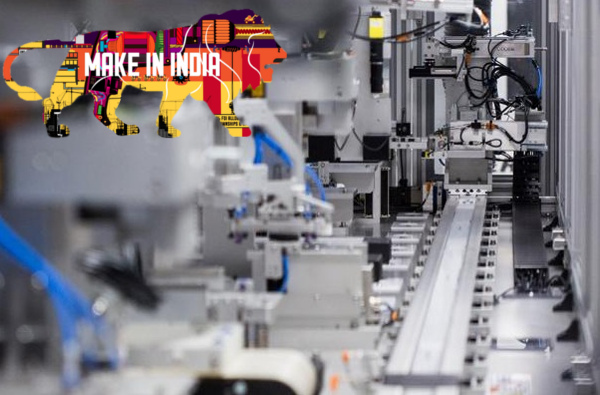Bharat Heavy Electricals Limited (BHEL) and Libcoin are in discussion to form a consortium to build India’s first lithium-ion battery (LIB) gigafactory, the government has announced.
The proposed plant will initially have a capacity of 1 gigawatt-hours but would be scaled up to 40gWh in due course.
With dialogue advancing, state-run energy powerhouse BHEL will soon send a team of senior officers to study the facilities, R&D infrastructure and other techno-commercial issues.
Based upon the evaluation and recommendations of the team, further work will be undertaken to form a joint venture.
In an announcement last Friday, India’s Heavy Industries and Public Enterprises ministry said the early-stage discussions on the plant represented the country’s first steps into energy security.
“This project will bring energy independence by replacing oil imports with abundant renewables,” the ministry said.
The lithium-ion battery plant will be a first for India and will involve leveraging “cutting edge digital technologies” in a bid to replace high capital and operating costs.
While the exact location of the plant wasn’t revealed, the ministry said the project would focus on core-cost components manufactured domestically.
The project is in line with the government’s “Make in India, for India” program which is aimed at strengthening the country’s manufacturing sector.
Magnis set to play key role in gigafactory
Sydney-based Magnis Energy Technologies (ASX: MNS) currently holds a 20%, non-dilutive stake in Libcoin, with aspirations to become one of the world’s largest manufacturers of lithium-ion battery cells.
With India set to emerge as a significant market for lithium-ion manufacturing, Magnis said it had been working with Libcoin over the last 12 months on the creation of the proposed gigafactory.
Commenting on the news, Magnis chairman Frank Poullas said it was encouraged by the Indian government’s commitment to the development.
“We see India as a key market and to potentially build one of the world’s largest gigafactories with a partner who possesses the skill and expertise of BHEL is very exciting for Magnis,” he said.
Magnis, formerly known as Magnis Resources, is involved in numerous global consortiums, with agreements in place to operate lithium-ion battery gigafactories in Australia, the USA and Germany.
Alongside this, the company continues to develop its Nachu graphite project in Tanzania.
Graphite remains in demand across many industries and has a variety of uses, including being a key ingredient in batteries for storing electrical energy.
Electric car demand fuels pivot to clean energy
Graphite remains in demand across many industries and has a variety of uses, including being a key ingredient in batteries for storing electrical energy.
Electric car demand fuels pivot to clean energy
The proposed development of a lithium-ion battery plant comes as various Indian cities struggle to cut down their pollution levels, with India’s pollution levels some of the highest in the world.
Plans for a lithium-ion battery plant come as the country ramps up its rhetoric on its commitment to a clean energy future.
Given the electric car revolution is now a reality around the globe, electric transportation has been considered as one of the viable approaches to cut down India’s emission levels.
The number of electric cars around the world hit the million-mark last year, and the International Energy Agency has projected almost 140 million electric cars globally to be operating by 2030.
Light weight lithium-ion batteries play a key role in powering EV cars, houses and industry and offer an alternative to coal when it comes stabilising electricity grids.
India’s move to build its own lithium-ion battery plant will help the country meet its ambitions of having at least 15 percent of vehicles on its roads be electric within the next five years.
Source:SmallCaps
Image Courtesy:PSUWatch
You may also like
-
Trade Connect E-platform For Exports Is Single Window, Fast, Accessible And Transformational: Shri Piyush Goyal
-
Dot Simplifies Approval Processes For Telecom Licenses And Wireless Equipment
-
Coal Production and Supply Trends on Positive Trajectory
-
Union Minister To Release Booklets On Promotion Of Indigenous Species & Conservation Of States Fishes
-
2nd India-Japan Finance Dialogue held in Tokyo on 6th September, 2024
